How it all started
CEO Stephan Nell met Werner Redeker, former Chairman of the Board of Körber AG, for the 30th anniversary of the UNITED GRINDING Group. The discussion takes them back to the nineties when the Körber Schleifring was formed during a serious crisis in the German and Swiss machine tool industry. The Schleifring was the predecessor from which the present UNITED GRINDING Group emerged. And it looks to the future of the group in a world where many things are changing and yet a surprising amount remains the same
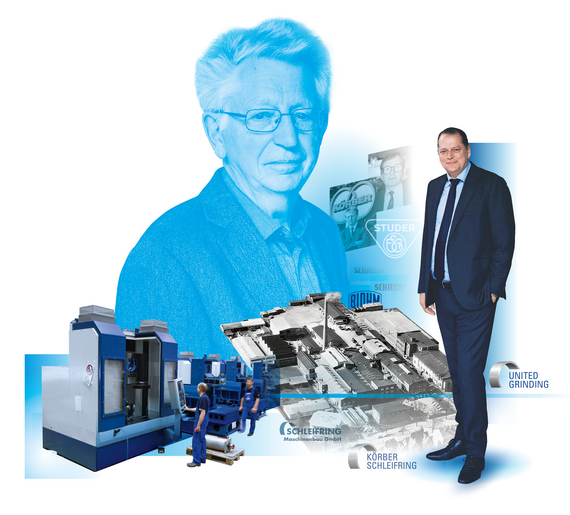
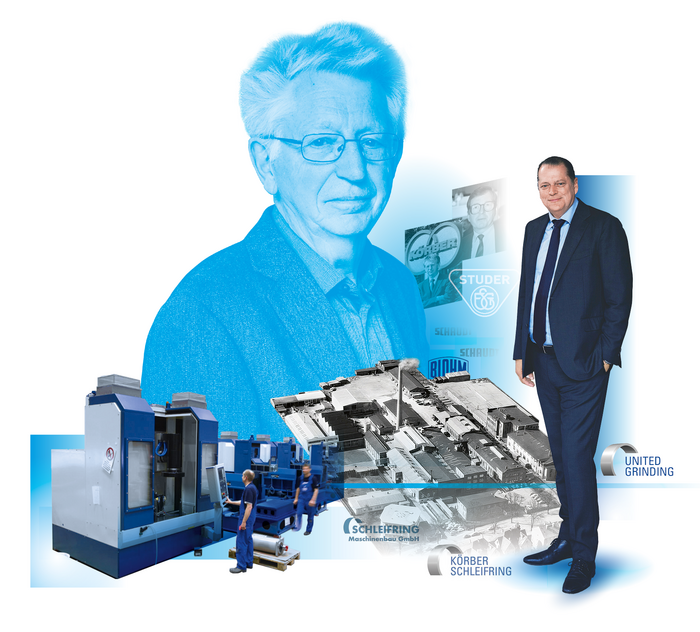
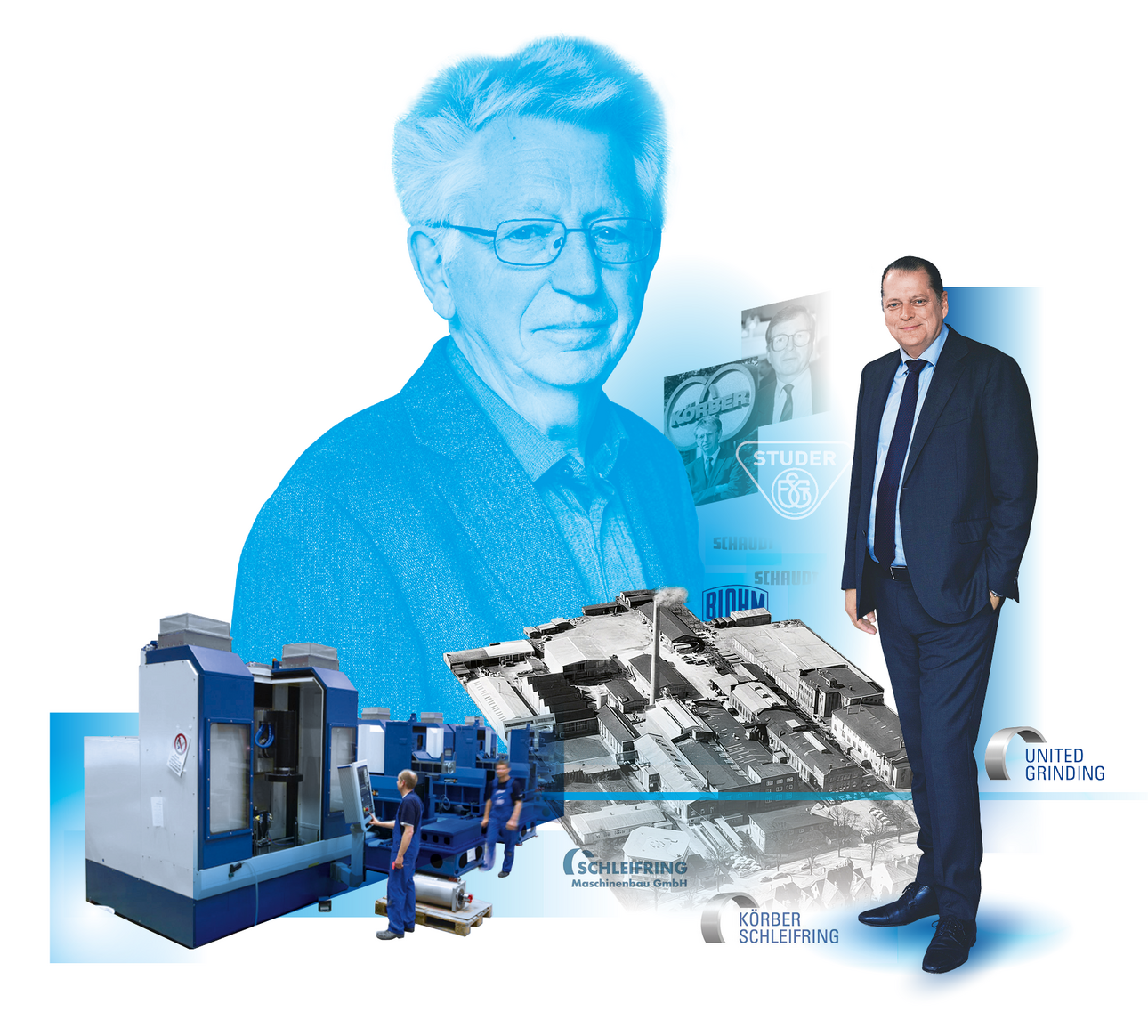
I’ll show you the 2013 Motion that was published to introduce the new brand and the new machine design. Do you remember, Mr. Nell?
Stephan Nell: The new machine design was a major revelation back then at the EMO in Hanover. For the first time, the outside world saw us as a group. We exhibited machines from all our brands together at the EMO, all with this new design. It was a big step in the right direction for us.
Werner Redeker: I remember this magazine. I was still Chairman of the Board at Körber. Creating a unified brand for the Group and achieving greater cohesion was already an ongoing issue at Körber that we never really managed to solve.
Nell: A lot has changed since then. The brands work together on many projects. We have established working groups beyond the separate brands in many areas. Cooperation is a priority—now we collaborate instead of competing. Another great example is our new C.O.R.E. OS user interface. It would not have been possible without close cooperation. But we also achieve more together in sales, marketing, finance, production—by which I mean our manufacturing concept—and in many other areas. Nevertheless, we are still not where we could be.
Redeker: I can tell you something, you never get there 100 percent …



Mr. Redeker, you started as a development engineer at Körber in 1979.
Redeker: I can still remember the interview with Eberhard Reuther. He first gave me a tour of HAUNI. At the time, HAUNI was already a model plant. The Mecca of manufacturing technology with all the latest machines and equipment. And then we crossed over the road to BLOHM. What a difference between them. Eberhard Reuther explained his plans for BLOHM and convinced me to start working there. And what can I say, it all turned out like he explained it. Better in fact.
What role did German Chancellor Helmut Schmidt play in the takeover of companies such as BLOHM or SCHAUDT?
Redeker: Bergedorf, the location of HAUNI and BLOHM, was in Schmidt’s constituency. And Schmidt asked his friend Körber to take over BLOHM. However, Körber was initially only interested in taking on the employees he needed for his growing business. At the same time, however, he also investigated the future of the machine tool market. At the time, BLOHM had a famous twin-head machine for the turbine industry. That was interesting.
Nell: They are still available today ...
Redeker: ... and it was one reason that convinced Körber to acquire BLOHM as a machine tool company. Eberhard Reuther organized the takeover and immediately became the division manager after the takeover. As a non-technician, he got very deeply involved in the technology and began to rebuild BLOHM with great verve. That is when I met him for my job interview.
And the Schleifring companies in former East Germany, like MIKROSA for example. How did they join the Group?
Redeker: East German companies had been held in escrow for disposal of assets since reunification in 1989. Reuther himself comes from Leipzig. Helmut Schmidt was already on the Körber Supervisory Board at the time. At the EMO 1992, he saw our BLOHM and SCHAUDT booth and had a word with me: do not close any of the three East German companies in the next three years! And so we also took care of the East German Schleifring. We fought hard during this time. I kept saying, this is going to go terribly wrong with only BLOHM and SCHAUDT and the three East German companies. But, the decision at the time was that we either get out of the machine tool industry or we do it right.
And we know what decision was made.
Redeker: We wrote to many grinding machine companies asking them to join us and many were interested. To our surprise, so were the Swiss companies STUDER and MÄGERLE. I still remember the first discussions. The two managing directors were very successful, but very different personalities.
Nell: The same applies to the owners: One was a well-known Swiss investor, the other an architect and art lover—which is where we got the slogan “The Art of Grinding.”.
Redeker: When all the discussions went well, it was clear that we had to set up Schleifring as a separate division. It was a completely different business than we had with HAUNI before. Very strong competition, a very diverse international customer base.



How bad was the crisis at the beginning of the nineties?
Redeker: The economy was at rock bottom worldwide. Industries such as the automotive sector and turbine manufacturers were no longer investing. For example, SCHAUDT did not receive any inquiries for six months and therefore did not receive a single order. Some companies disappeared into obscurity or the owners gave up due to poor equity. Many East German companies still believed that the market would revive thanks to good contacts with Russia, but they were wrong. However, MÄGERLE, which turned a profit during the crisis, and STUDER were not at risk. But all the other companies in our new Schleifring Group could not have survived without us or another investor.
Mr. Nell, you started your career in the midst of this crisis?
Nell: Well, I didn't start until 2002. But I know about crises too. They are common in the machine tool business. There is a slump roughly every seven years—it is a volatile industry. I have friends in the food industry who complain if sales fall by five percent. That wouldn’t even bother us. You have to learn how to deal with it and develop something like resistance to downturns. We always need to know what would happen if sales dropped by 30 percent from the peak. What exactly? What measures to take, when will they take effect? There is only one rule: permanent staff will not be made redundant. Our goal is to keep the team. Because it is also clear that things will improve again afterwards and then we can only succeed if we also have the people.
Redeker: At the time, we didn’t have a setup like that for Schleifring. We simply had too many people for the few orders we received. And the German companies could not be adapted quickly enough due to legislation. Besides that, we never liked dismissing people at Körber. There was a completely different mentality in Switzerland. Despite staff reductions, the people in the companies were much happier than those in Germany. There, they knew they would be needed and hired back very quickly when things picked up. And that is exactly what happened starting in 1994. But many German companies had already disappeared by then.
Nell: We have gained additional market shares after every crisis of the last 20 years. And that is because we had the strength of the Group—and the people. Also because we did not need any funding for larger orders and because we ordered material early on. We only lose out if the issue of the moment is pricing. We do not engage in the kind of price competition that our competitors do out of desperation. Because what I sell has a value—and it still has the same value even if the market doesn`t perform.
Redeker: But you also need to have the products. Before being taken over by Körber, BLOHM had relied on standard machines that were never really developed any further for 20 to 30 years. There were hardly any innovations. Sales were steadily declining, and in the meantime, the competition in the turbine industry, which was so important for surface and profile grinding machines, had made considerable progress. When we were acquired by Körber, Eberhard Reuther initiated a period during which we caught up extremely quickly and then outpaced our rivals.
Nell: Today, the UNITED GRINDING Group invests the same amount into research and development every year regardless of the state of the economy. We already established this habit during the Körber years. You can always find excuses for not spending money on development: If things are going badly—we have no money. And if things are going well—we have no time. So you end up with an outdated product range. We can only convince new customers to buy from us if they earn more with our machines than with the machines made by our competitors. That’s why continuous investment is crucial. Results can be optimized, of course, but never at the expense of substance. And the other thing: we can be sure that machine tools will always exist. For as long as we humans move, live, and deal with things we can physically handle.
Redeker: The machine tool industry is the mother of all machines, they say.
Nell: This is a business that works in very long cycles. It is not a question of raising the return on sales by two tenths. This is a long-term business, and that’s how we want to handle it. Responsibly.
New topic: the Schleifring Group had already begun to expand internationally and today the UNITED GRINDING Group generates more than half of its sales outside Europe. What has been continued and what has changed?
Redeker: BLOHM and SCHAUDT already had major customers in the USA and China, and a few in Japan. We didn’t have much of a presence yet in these locations just because of our size. Then STUDER joined us and already had its own subsidiaries and agencies around the world. We were then able to afford to expand our presence in the USA and China. Local contacts, local service technicians. At the time, we were struggling to find a name to use in the USA and ended up choosing UNITED GRINDING Technologies. This then became UNITED GRINDING Group. I am very happy about that.
Nell: The difference is that back then we were a European company with international business and now we have become much more of an international group. Anyone seeing UNITED GRINDING North America today would see an American company, not a branch of a German or Swiss company. It’s very similar in China. Many of the things we are discussing today were set in motion years ago. And we have actually made excellent progress.
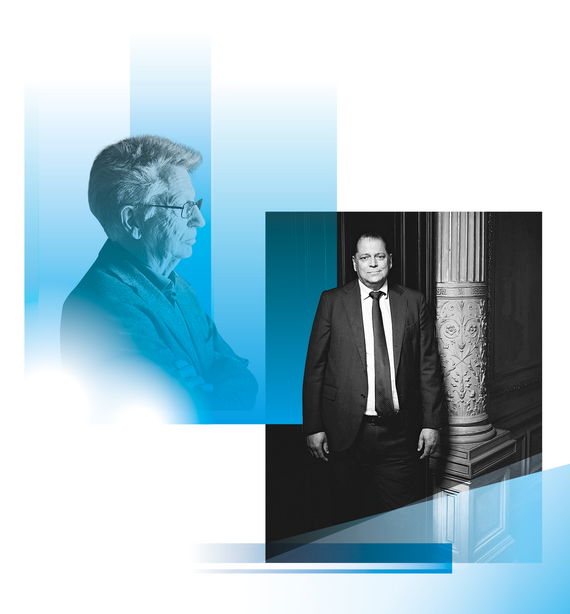
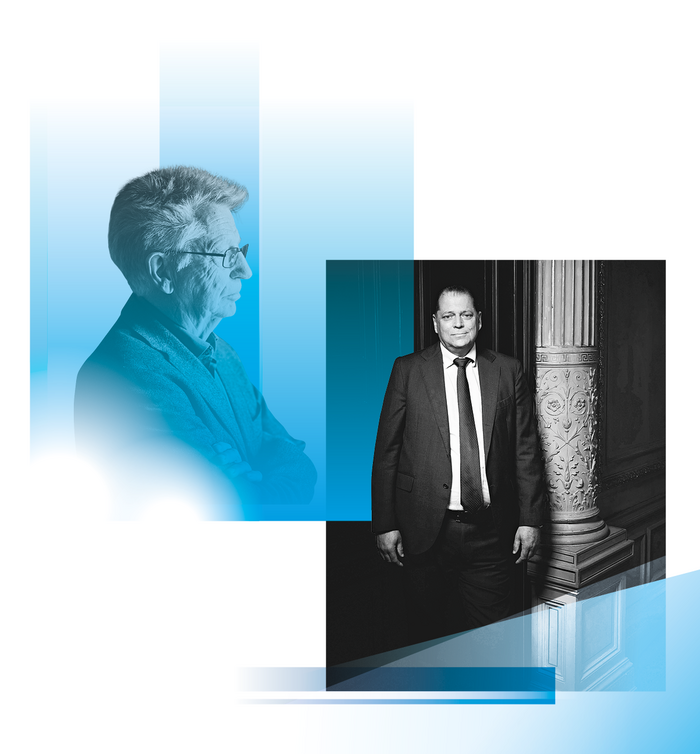

One reason for this was certainly that both the Körber Schleifring and UNITED GRINDING Group are based on the idea of running separate companies as a group. What are the tangible benefits?
Redeker: Quite simply that every company and every brand is backed up by a strong parent enterprise. This is helpful during a crisis—for example, we can always provide our customers with services no matter what predicament we are in. Is it also advantageous for international expansion. We can afford to open sales and service branches without each company having to fund everything themselves.
Nell: The various member companies also have different customers and industries with different business cycles. This buffers the fluctuating effects of every economic cycle across the group. Digitalization is a current topic where working as a group is beneficial. The size of the group and the fact that we cooperate with more people are favorable as we can develop more know-how and better software.
But aren't there also situations in which companies are not so enthusiastic about being welded together into a group?
Redeker: Of course, individual company managers have a healthy self-interest. This selfishness is partly healthy, but partly also an impediment to enhancing our synergies.
Nell: They only get enthusiastic later on when the additional benefits become apparent.
Redeker: Another thing that was certainly crucial for the development of the group as it is today was the earlier combination of Körber AG and Körber as a foundation-owned company—a great concept. Models of this kind are similar to a family business—they think in the longer term and keep profits within the company. The executives and workers alike feel that they are also doing something for the benefit of society.
Nell: This is the background to how today’s group came to exist.
Redeker: Without the foundation, the UNITED GRINDING Group would not exist today. I don't think that anyone else in 1993 would have been willing to bring together so many companies, almost all of which were struggling, and take over the East German companies too. Although these were bought for negative purchase prices, i.e. with subsidies. You can live on subsidies for two or three years but not in the long term. You have to get your feet on the ground at some point. You can only do that in companies or investor groups that consider long-term goals, not just tomorrow and the day after.



